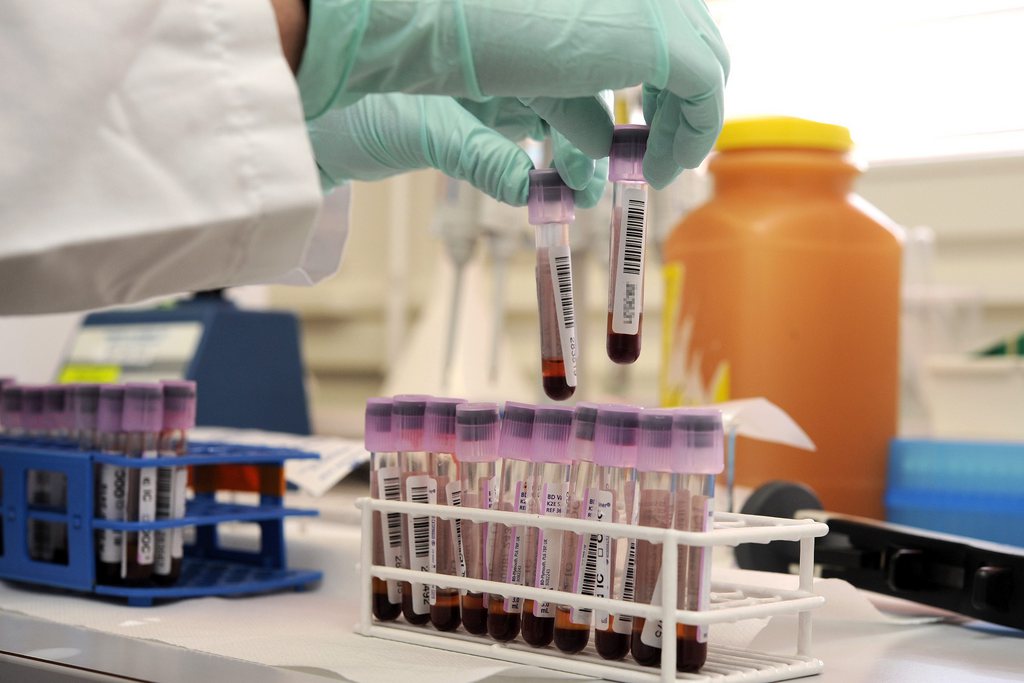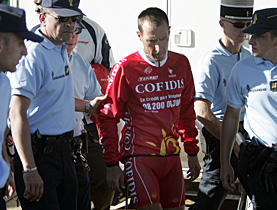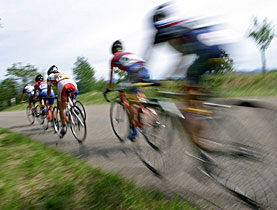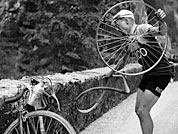Press criticise UCI in Armstrong affair

Swiss newspapers have welcomed the decision by the International Cycling Union (UCI) to punish US cyclist Lance Armstrong for serial doping, but questioned the role of the organisation, based in Aigle, canton Vaud.
While tabloid Blick talked about Armstrong’s “Seven deadly sins” and Zurich’s Tages-Anzeiger opened its editorial with the “deserved” ban, the French-language papers focused on the role of the UCI, which had “saved face” but “lost credibility”.
On Monday, 41-year-old Armstrong was stripped of his seven Tour de France titles and banned for life after the UCI ratified the United States Anti-Doping Agency’s (USADA) sanctions against him.
The decision effectively destroyed Armstrong’s last hope of clearing his name after he was exposed as a drug cheat, triggering a wave of condemnation and legal threats.
“Lance Armstrong has no place in cycling. Lance Armstrong deserves to be forgotten in cycling,” UCI president Pat McQuaid told a news conference.
The Tribune de Genève was not ready to forget quite yet – it was the only Swiss paper to lead with Armstrong on the front page, knocking off the day’s other main story: the bankruptcy of small Swiss charter airline Hello.
“Cycling closes the book on Armstrong, the fallen king” was the headline above a large close-up of a grimacing Armstrong in the saddle.
“The Boss”, the paper said, referring to Armstrong’s nickname, “had lost all credibility, as had the UCI”.
“[The UCI] would have done better to palm this hot potato onto the [Lausanne-based] Court of Arbitration for Sport, but the pressure was too great and the USADA report too damning.”
But it ended by trying to find a silver lining. “Although fewer and fewer people believe in [the innocence] of cycling, more and more people are actually getting on their bikes”.
“Deserved” punishment
“Lance Armstrong deserved [this punishment] … but the verdict is only partially justified,” reckoned the Tages-Anzeiger. “It doesn’t take into account that Armstrong was only doing what his strongest opponents were also doing.”
The paper said it would have been legitimate to expunge not only Armstrong but also the whole “EPO-que” – from the early 1990s to the middle of this decade – when the drug EPO was allegedly used by almost all of the top riders.
McQuaid, who was criticised for his and the UCI’s handling of the affair, conceded that cycling was in crisis and pledged to do more to clean up the tainted sport but said he would not be standing down.
“Cycling has a future. This is not the first time cycling has reached a crossroads or that it has had to begin anew,” he said. “I’m sorry we couldn’t catch every damn one of them red handed and throw them out of the sport.”
“Rewriting history”
Le Temps in Geneva said the UCI didn’t have any choice in banning Armstrong “and had thus saved face”. But “guillotining him to the sound of cheers” left many questions unanswered, such as the future legal status of testimonies and amnesties and how to deal with the other cyclists named in the USADA report.
“Rewriting history has never guaranteed the building of a better future,” it said, pointing out that no sooner had the UCI announced its decision than USADA boss Travis Tygart demanded the creation of an independent commission.
“It is important to remember that while today is a historic day for clean sport, it does not mean clean sport is guaranteed for tomorrow,” Tygart said.
Le Temps concluded that everything – including the UCI decision – was about appearances, quoting Microsoft founder Bill Gates: “If you can’t make it good, at least make it look good.”
On October 10, USADA published a report on Lance Armstrong which alleged the now-retired rider had been involved in the “most sophisticated, professionalised and successful doping program that sport has ever seen”.
Armstrong, 41, had previously elected not to contest USADA charges, prompting USADA to propose his punishment pending confirmation from cycling’s world governing body.
Former Armstrong team mates at his US Postal and Discovery Channel outfits, where he won his seven successive Tour titles from 1999 to 2005, testified against him and themselves and were given reduced bans by the American authorities.
Armstrong, widely accepted as one of the greatest cyclists of all time given he fought back from cancer to dominate the sport, has always denied doping and says he has never failed a doping test.
He said he had stopped contesting the charges after years of probes and rumours because “there comes a point in every man’s life when he has to say, ‘Enough is enough’”.
According to USADA, one of the central figures in the Armstrong affair was the Italian doctor Michele Ferrari, known as “Doctor EPO”. In the USADA report, at least $735,000 (SFr680,000) paid by Armstrong to Ferrari was found in a Neuchâtel-based company called Health & Performance.

In compliance with the JTI standards
More: SWI swissinfo.ch certified by the Journalism Trust Initiative





You can find an overview of ongoing debates with our journalists here . Please join us!
If you want to start a conversation about a topic raised in this article or want to report factual errors, email us at english@swissinfo.ch.